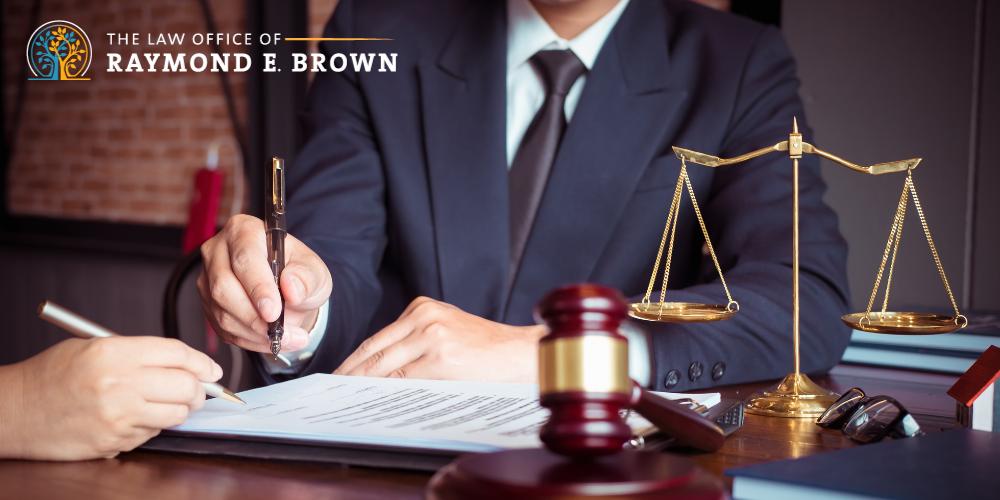One of the biggest misconceptions about estate planning is that it’s only reserved for older adults who are nearing the end of life. In reality, it’s important for all adults to consider making an estate plan. Millennials, which are the largest generation since the baby boomer generation, are approaching an age at which they should begin making a plan for the future of their estate.
Need an estate plan but you don’t know where to begin? Call an Annapolis estate planning lawyer at The Law Offices of Raymond E. Brown. With years of experience in trust and estate planning and administration, we can help ensure you have a secure plan in place in the event of a health emergency or fatal accident. Call our law office at (443) 554-9944 to schedule an appointment with a Maryland estate planning attorney today.
How the Millennial Generation Can Benefit From An Estate Plan
As the largest living generation, millennials have a very large collective net worth, with estimates reaching over $9 trillion as of 2022. Having an estate plan in place can help ensure that their assets and dependants are taken care of after they die. While it’s not something many people want to think about, estate planning can also help their family through the succession process, which can definitely help alleviate some of the pain and stress of losing a loved one.
In addition to all of the benefits estate planning can have for their family members, millennials can also personally benefit from estate planning by gaining an understanding of the process. When someone inherits assets from a family member, there can be lengthy legal proceedings before anyone receives their inheritance. When they finally do receive the assets they were promised (or that the state decided they should have), they may have to deal with unexpected tax implications as a result.
Millennials have aging parents and grandparents who have been building wealth for decades. Gaining an understanding of how estate planning is done and how assets are distributed can be invaluable for millennials who may have to be on the receiving end of a will or trust in the future. It can also help them feel more comfortable making sound medical and financial decisions on their loved one’s behalf, if they are ever in that difficult situation.

Consequences of Not Planning For The Future
Estate plans can have a large number of benefits, and failing to have an estate plan can result in a lot of consequences. Those who die without a will or other necessary estate planning documents may have their assets contested in court for years, or they may never be given to the right people. This includes things like pets, cars, and even family homes.
According to U.S. Census data, more than half of all millennials own a home, which is one of the biggest financial assets a person can have. If a homeowner dies without the proper estate planning documents in place, ownership of their home may be transferred to someone in accordance with state law, rather than in accordance with their personal wishes.
Another consequence of not planning for the future is that incapacitated individuals are unable to have a say in their medical care. If someone is physically incapacitated for a period of time, they can’t make medical decisions for themselves. If they do not have someone that they trust designated to make medical decisions on their behalf, they will have no way of consenting to or denying medical treatment in accordance with their personal wishes.
While estate administration can be a hassle and require a lot of time and effort, the benefits outweigh the costs by a significant margin. If you are a millennial and you do not have an estate plan in place, call Raymond E. Brown at (443) 554-9944 and schedule a consultation regarding your estate plan today.

Considerations for Estate Planning for Millenials
There are many aspects of estate planning that millennials should consider. Below, we’ll go into detail about how each of these aspects can benefit millennials and help ensure that their wishes are carried out in the future.
Designate Beneficiaries
Millennials are often adaptable planners with flexible financial habits, which can make it difficult for them to make definitive financial decisions, especially when they’re making them for an unidentifiable time in the future. That’s why it’s important for them to designate people that they trust to make financial planning decisions on their behalf.
Millennials should designate beneficiaries for all their financial accounts, such as retirement accounts, life insurance policies, and bank accounts. These designations supersede any instructions in a will or trust, so keeping them up to date is essential.
Create a Will
While it may not be necessary for everyone to create a will, millennials who own property or have children can definitely benefit from this kind of long-term planning. A will-based estate plan allows someone to designate who will receive their assets and who will care for their children in the event of their death. This will also ensure that their assets can be distributed quickly and easily after their passing, which can really lift a weight off of their surviving family members’ shoulders.
Consider a Trust
Another estate planning element that millennials should consider is establishing a living trust. Trusts can be helpful for millennials who own property, have significant assets, or want to leave money to minor children. For example, if a single parent passes away and does not want their child’s other parent to access the child’s inheritance, the single parent can set up a trust that only their child will have access to.
Many millennials are starting families that are less centered around having children and are more centered around having pets. Fortunately, oet owners can establish what is called a pet trust, which allows them to provide care for their animals even after they’ve passed away.
At the end of the day, establishing a trust can give someone additional control over how their assets are distributed. Trusts can also help avoid probate, which is a lengthy and expensive legal process that can greatly diminish the amount of remaining inheritance once complete.

Plan for Incapacity
One thing that is important to plan for is becoming incapacitated, whether that be temporary or permanent. It’s important for all adults, millennials included, to have someone designated to make healthcare decisions on their behalf in the event that they become partially or fully incapacitated. They can instruct a trusted person on how they would like certain health situations to be handled. This allows someone who is incapacitated to basically make their own medical decisions, even after becoming incapacitated.
Additionally, it’s important to have someone who can help them receive coverage from their health insurance company. These can be taken care of by establishing a power of attorney, a healthcare proxy, and a living will.
Protect Digital Assets
We live in a digital age, and with the ever-increasing presence of digital media, people are beginning to acquire more and more digital assets. This includes photos, videos, social media accounts, audio files, online financial accounts, and more.
Millennials especially have a large amount of personal assets that are fully digital, which is why it’s important to designate someone to manage these assets after they pass away. They can leave passwords, usernames, and instructions for how someone should handle their digital assets in a safe place where they can only be accessed by people they trust.
Example of Millenial Estate Planning
An example of why estate planning is vital for millennials is Aunt Gertrude, a 32-year-old graphic designer. Gertrude has a small amount of savings and a 401(k) through her employer. She doesn’t own any property or have any children, but she does have a dog named Max that she adores.
Gertrude was recently in a car accident and was hospitalized for several weeks. During that time, she could not access her bank account or make any decisions about her medical care. If Gertrude had a durable power of attorney or an advance directive in place, she could have designated someone to make those decisions on her behalf.
Additionally, if Gertrude were to pass away unexpectedly, having a will in place would ensure that her savings and other assets are distributed according to her wishes. She could also create a pet trust to ensure Max’s care after her death.
While it may be uncomfortable to think about, estate planning is an integral part of life for millennials. By creating a solid plan, millennials like Aunt Gertrude can protect their assets, ensure their wishes are fulfilled, and provide peace of mind for themselves and their loved ones.

Need Help Planning? Call Experienced Maryland Estate Planning Attorney Raymond E. Brown Today
Life has many unexpected twists and turns, and unfortunately, our lives can instantly take a turn for the worse at any given time. As adults grow older, they can begin to accrue wealth and acquire assets, many of which they’ll want to protect or entrust in their family members’ hands in the event that they pass away. If you are a millennial, you should start thinking about estate planning to ensure your wishes are carried out after you are incapacitated or after you pass away.
Not sure where to start? The Law Office of Raymond E. Brown is here to help. We’ll take you through the entire estate planning process and ensure you understand each step of the process long before you put pen to paper and sign your estate documents. Plan for the future today–call us at (443) 554-9944 or contact us online to schedule a consultation with our experienced attorneys.

